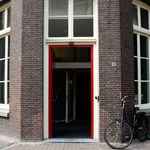Vossius Seminar
- Date
- 11 November 2024
- Time
- 15:00 -17:15
- Location
- BG 1
- Room
- 0.16
Program:
15.00-16.00h:
Bridging Multiple Knowledges in Humanities Research: Investigating the Recent History of Community Mental Health in Australia
Hans Pols, University of Sydney & Vossius fellow
In the history of science and medicine, multiple knowledge systems have interacted with fruitful results. Over the past twenty years, historians of colonial science and medicine have highlighted the often-unacknowledged role of local intermediaries in the formation of medical and botanical knowledge by western physicians and explorers. Representatives of various Aboriginal communities in Australia started to refuse to serve as objects of knowledge and insisted on becoming participants in the production of knowledge to address pressing challenges. Similar arguments have been made by American Indians; Kim TallBear, known for her work in indigenous STS, has made similar claims. The principles of co-design and co-production aim to bring different parties together in formulating issues for investigation and methods indicating how they can be addressed.
In this talk, I do not aim to address philosophical questions related to the status of science and various knowledge traditions. Instead, I will provide an example from a research project on the history of community mental health in Australia which I have facilitated over the past five years. The research team consisted of two academic historians, a public historian, a psychologist, a psychiatrist, and four consumers of mental health care. Inspired by the slogan “Nothing About Us Without Us” from the disability rights movement, consumers of mental health care have become participants in mental health research. In this research project, we aimed to explore how the principles of co-production and co-design could be developed and implemented in research in the humanities, in particular the recent history of mental health.
16.15-17.15h:
Capturing the Southern Skies: Leiden Observatory’s Search for a Southern Station in the Netherlands East Indies and South Africa
Chaokang Tai, University of Amsterdam
In the early 1920s, Leiden Observatory sought to conquer the southern skies – a prospect had become possible with the professional implementation of astrophotography that had introduced an international division of labour. The preferred strategy of the Leiden astronomers was to have photographic plates taken at a colonial observatory according to their instructions and then have them shipped to Leiden for further measurement and analysis. Their initial plan was to take complete control over the new-to-be build observatory near Lembang in colonial Netherlands East Indies. This plan, however, was thwarted by the efforts of local philanthropists who wanted the observatory to serve the local population. Instead, Leiden started a collaboration with the Union Observatory at Johannesburg in the British colony of South Africa, whose director had little faith in the scientific prowess of the local population. He embraced the plan of the Leiden astronomers, believing it would optimize the scientific exploitation of the southern skies. By delineating and contrasting the disparate reactions in Lembang and Johannesburg to the overtures of the Leiden astronomers, this paper explores the impact of different colonial systems on how colonial observatories operated and the research they conducted.
